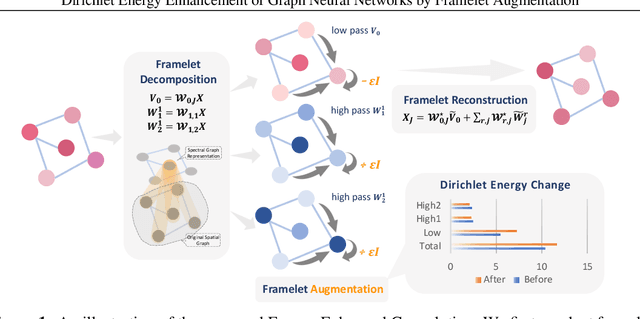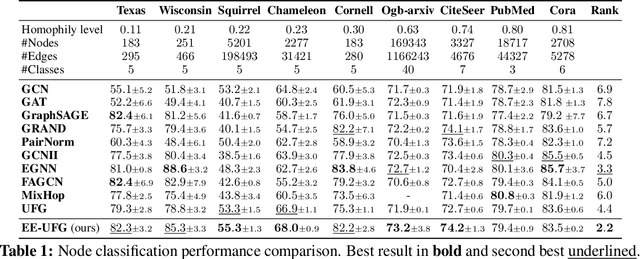Dirichlet Energy Enhancement of Graph Neural Networks by Framelet Augmentation
Paper and Code
Nov 09, 2023



Graph convolutions have been a pivotal element in learning graph representations. However, recursively aggregating neighboring information with graph convolutions leads to indistinguishable node features in deep layers, which is known as the over-smoothing issue. The performance of graph neural networks decays fast as the number of stacked layers increases, and the Dirichlet energy associated with the graph decreases to zero as well. In this work, we introduce a framelet system into the analysis of Dirichlet energy and take a multi-scale perspective to leverage the Dirichlet energy and alleviate the over-smoothing issue. Specifically, we develop a Framelet Augmentation strategy by adjusting the update rules with positive and negative increments for low-pass and high-passes respectively. Based on that, we design the Energy Enhanced Convolution (EEConv), which is an effective and practical operation that is proved to strictly enhance Dirichlet energy. From a message-passing perspective, EEConv inherits multi-hop aggregation property from the framelet transform and takes into account all hops in the multi-scale representation, which benefits the node classification tasks over heterophilous graphs. Experiments show that deep GNNs with EEConv achieve state-of-the-art performance over various node classification datasets, especially for heterophilous graphs, while also lifting the Dirichlet energy as the network goes deeper.
 Add to Chrome
Add to Chrome Add to Firefox
Add to Firefox Add to Edge
Add to Edge